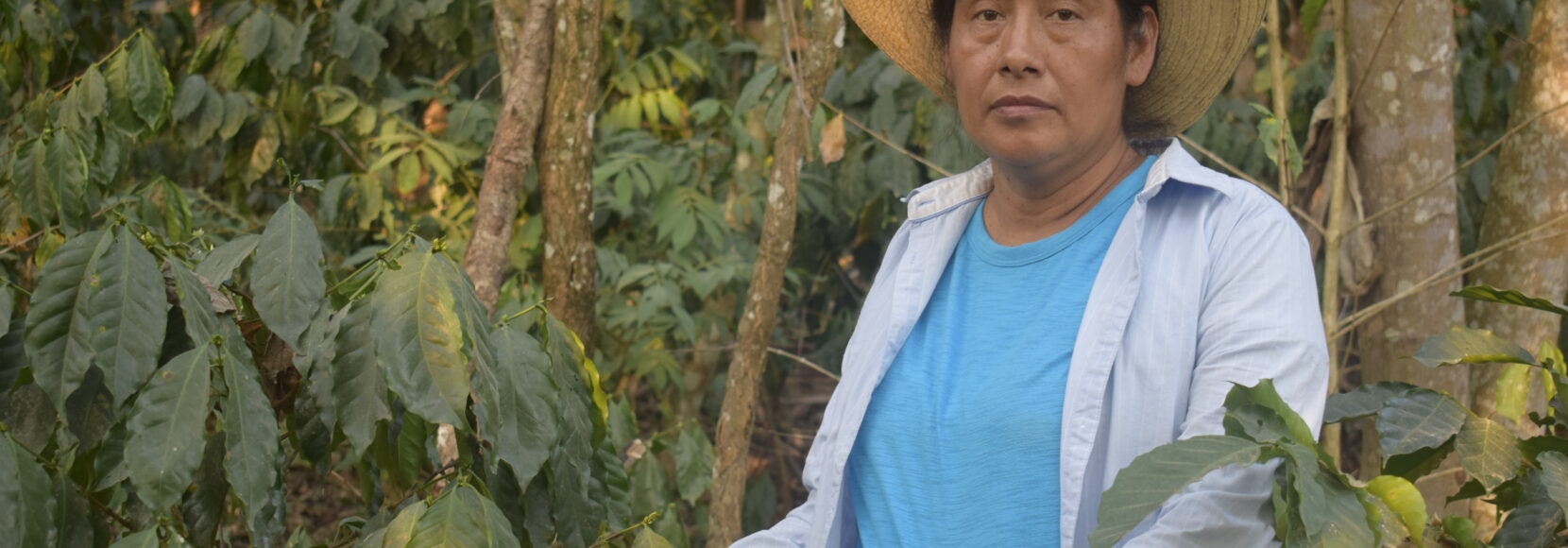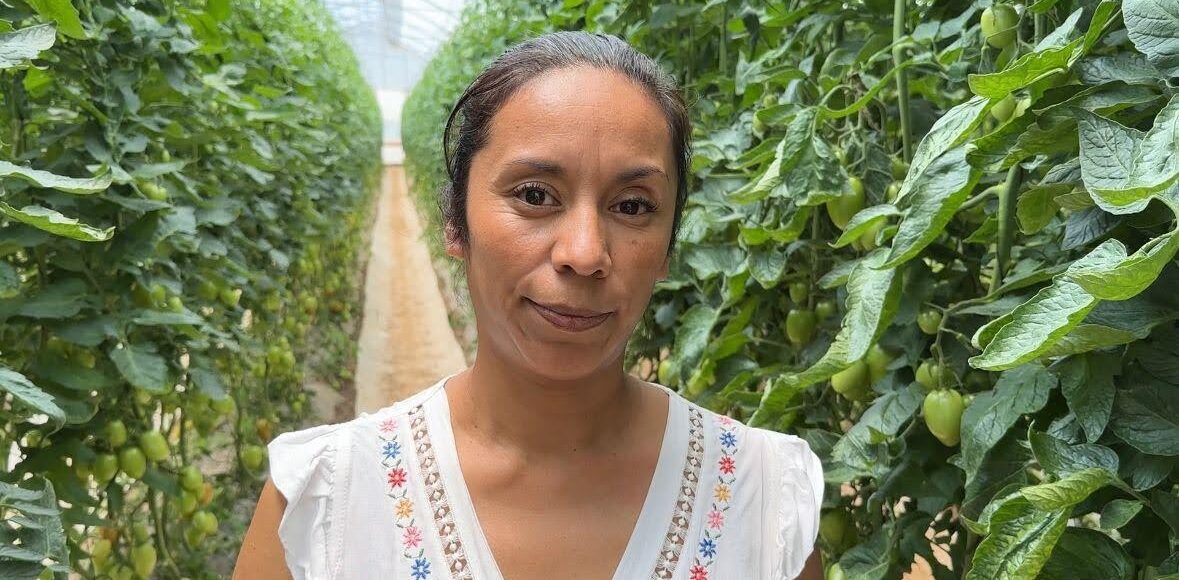
Five Regenerative Gardening Tips to Borrow from Smallholder Farmers Worldwide
Even if you’re a hobbyist gardener, organic farming practices offer plenty of benefits for your backyard garden, your plants, and the environment.
If you tend a home garden, then you already share a connection with the millions of smallholder farmers working with TechnoServe to improve their farms and incomes. Many of these farmers tend family land close to their homes, cultivate their crops with care, and battle pests and weather like many a home gardener.
However, for many smallholder farmers–indeed, nearly two-thirds of the world’s low-income people–farming is not just a passion but a livelihood. Better farming techniques and market connections can help these farmers forge a path out of poverty.
And as climate change makes their livelihood increasingly precarious, TechnoServe is helping farmers learn techniques that both improve their resilience and the local environment. Often, this training includes organic farming techniques that home gardeners can apply to their own plots.
What is Organic Farming?
According to the USDA, organically grown food involves no synthetic fertilizers or pesticides. This often involves farming methods that primarily use ecologically based pest controls, fertilizers mainly derived from plant and animal waste, and nitrogen-fixing cover crops. These organic farming practices developed largely as an attempt to mitigate the environmental damage and consumer health concerns caused by the overuse of chemical pesticides and synthetic fertilizers in conventional agriculture. Choosing organic rather than conventional farming practices leads to less pesticide use, protects soil from erosion, recycles animal waste, and decreases nitrate leaching into surface water and groundwater.
What Are the Principal Methods of Organic Farming?
Organic farming relies primarily on using preventative measures to take care of weeds, insects, and plant diseases, and uses non-toxic methods to handle any issues that do arise. Organic producers emphasize soil health, and do not use synthetic fertilizers or genetic engineering in their farming.
What Are the Benefits of Organic Farming?
Organic farming offers many benefits for both consumers and the environment. Organic farming practices help prevent water pollution from runoff, help mitigate the effects of climate change and air pollution, and support soil health, biodiversity, and long-term sustainability.
What Are the Differences Between Organic and Conventional Farming?
Perhaps the most important difference between organic and conventional farming is that conventional farming relies on chemical interventions such as synthetic fertilizers, herbicides, and pesticides to manage pests, weeds, and plant nutrition. Organic farming, on the other hand, uses practices such as composting and crop rotation to keep plants healthy and producing.
How Organic Farming Helps in Sustainable Development
Since organic farming relies on using local seed varieties and manure from livestock rather than imported seeds or synthetic fertilizers, it can offer a cost-effective solution for farmers in developing countries. The market for organic products is also growing at both local and international level, presenting a significant opportunity for farmers to improve their livelihoods.
Organic Farming Tips for Beginners
At TechnoServe, we emphasize several organic farming practices to the farmers we work with, including composting, mulching, organic fertilizer use, natural irrigation systems, and natural pest management systems. And, even if you’re more of a hobbyist gardener than a smallholder farmer, these organic farming practices can offer plenty of benefits for your garden, your plants, and the surrounding environment (even if that’s just your backyard!)
1. Composting
Compost is decayed organic material, such as leaves, vegetable matter, and manure, that can be used as plant fertilizer. It is nutrient-rich and can be used in both larger scale agriculture and at-home gardening.
Composting is a climate-smart technique that can have great benefits for farmers. For example, our Farmer Trainers recommend composting to coffee farmers in Zimbabwe, with positive results. Farmers who have implemented composting have reported that the water retention capacity of their soil has improved, and their coffee is now more resilient to dry periods.
Composting for your home garden offers plenty of benefits as well! Not only might you see your plant and soil health improve, but you’ll also greatly reduce the amount of food waste you produce. There are a variety of methods available to make your own compost at home, and plenty of helpful composting guides are available.
2. Mulching
Mulching is similar to composting in that it also improves plant health by making use of organic matter that might otherwise be wasted. Mulching involves placing any organic material or ever some inorganic materials over the top of a soil surface for protection from the elements. This practice can lead to reduced soil erosion, greater moisture conservation, reduced weed growth, fewer compactions, and increased control of soil temperature.
Rafael Rodríguez Hernández, a coffee farmer in Puerto Rico, mentioned mulching when discussing the techniques he has learned from TechnoServe that have helped his farm recover in the wake of Hurricane Maria.
“We have learned about mulching, better fertilizing techniques, and more,” said Mr. Rodríguez Hernández. “I recommend TechnoServe to everyone because they can help farmers move forward, just as they helped me, even more so after a tragedy like Hurricane Maria.
Mulching is easy to apply in your home garden, as well, and you might even be able to use materials you already have at home. For example, grass clippings can make an excellent option for mulch. Next time you mow your lawn, try gathering up your grass clippings and see your garden reap the rewards.
3. Using Organic Fertilizer
Most crops benefit from some sort of fertilizer use, whether organic or inorganic. Fertilizers can greatly improve soil structure, quality, and nutrient content, helping plants thrive. However, not all fertilizers are created equal. Synthetic fertilizers, while fast-acting, can also be detrimental to the environment if not applied with precision.
Organic fertilizers can present a viable alternative. In fact, for the Peruvian community of César Vallejo, biofertilizers have even proved instrumental in weathering the wide-reaching effects of the Russian invasion of Ukraine.
Peru imports the vast majority of its synthetic fertilizers, with about 70% coming from Russia. The conflict in Ukraine, however, has made it much more difficult for farmers to purchase the synthetic fertilizers they were using. Local coffee farmer Wilder Tucto Aguirre also runs a biofertilizer business with a few of his neighbors. His products have helped farmers maintain their crops, despite the fertilizer crisis.
“We’re harvesting cucumbers, napa cabbages, and even tomatoes,” he said. “It’s producing good results.
Organic fertilizers can also help your home garden flourish. Depending on what you’re planting and what your soil needs, some organic fertilizer options include alfalfa meal, cottonseed meal, corn gluten meal, cow or chicken manure, and even seaweed or bat guano!
4. Natural Irrigation Systems
In many areas of the world, climate change has led to an increase in both prolonged periods of drought and heavier than normal rainfall. With this in mind, efficient, natural irrigation systems are more important than ever to help small farms thrive.
In Karnataka, India, for example, smallholder farmers are adopting integrated farming practices that help them make the most of the land and resources they have. Drip irrigation, a type of micro-irrigation that helps prevent water waste and conserves soil nutrients, is one such practice.
At home, watering your plants efficiently can help you reduce both your water waste and your water bill. Drip irrigation, self-watering planters, and rainwater irrigation systems are all great options.
5. Natural Pest Management
Climate change has already led to new pests and plant diseases, as well. This has forced many farmers to invest more resources in pest prevention, contend with reduced incomes from lower crop yields, or even switch to growing new crops entirely.
Natural pest management systems, however, have the potential to help. Natural pest control comes in many forms, and can include physical mechanisms such as chicken wire, deer fence, insect screens, bird nets, and shade cloth. Biological pest control methods can include planting specific plant species to draw helpful predatory insects, such as lacewings and ladybugs, that prey on the insects that would otherwise infest and eat crops.
For Élio Herculano, a farmer in Mozambique, natural pest control, along with other interventions, has made all the difference in the health of his crops. After being introduced to crop care practices like fertilizing, weeding, staking, and disease and pest control, Élio quickly noticed changes in his plants: “I see that these cucumber plants are giving me one cucumber per leaf,” he said. “The variety I planted previously only provided one cucumber for every three leaves.”
With such significant results, he is hopeful for the future. “I am going to improve my production techniques, and that will allow me to improve my productivity, and, hopefully, income.”
Many of these natural pest control solutions are easy to implement at home! Your local garden supply store should have the materials you need to set up basic physical pest controls, as well as seeds for plants like marigolds, petunias, nasturtiums, alliums, and chrysanthemums, all of which repel pesky garden bugs.
With these organic farming methods practiced around the globe, we hope you feel more empowered to grow a flourishing, environmentally friendly garden at your own home.





